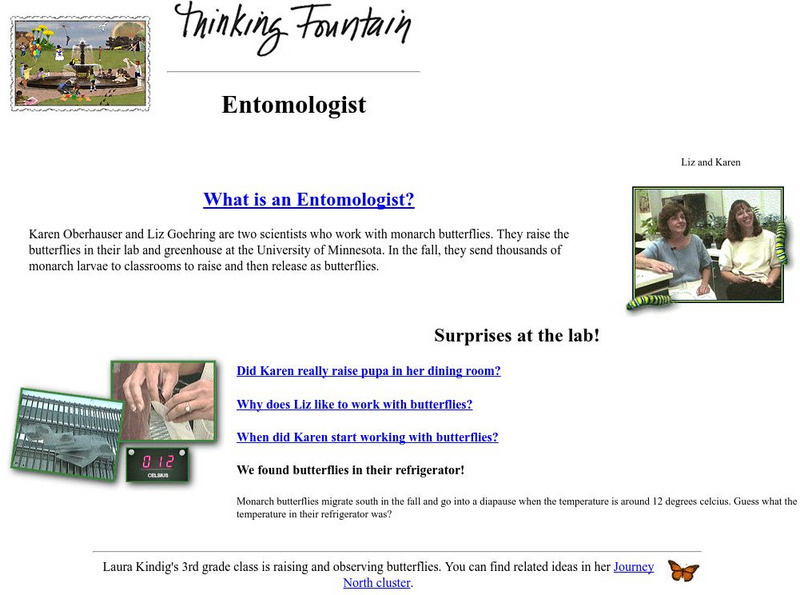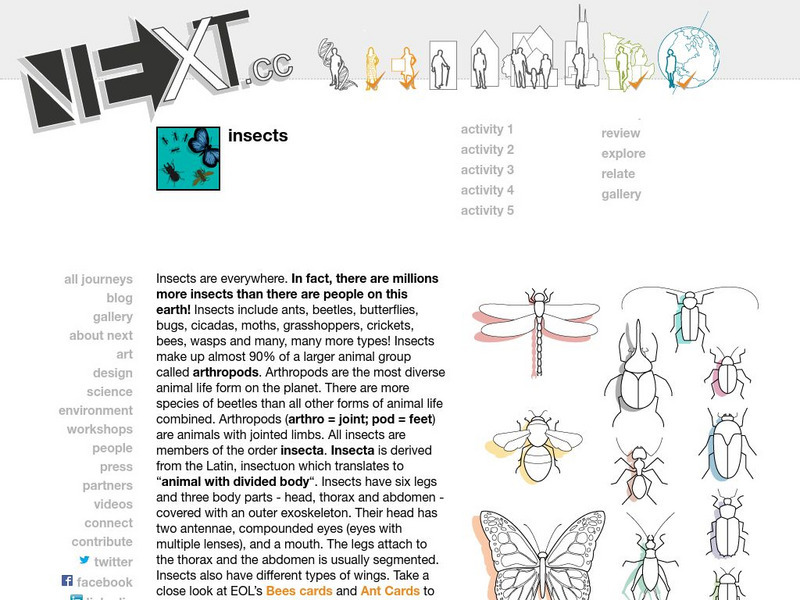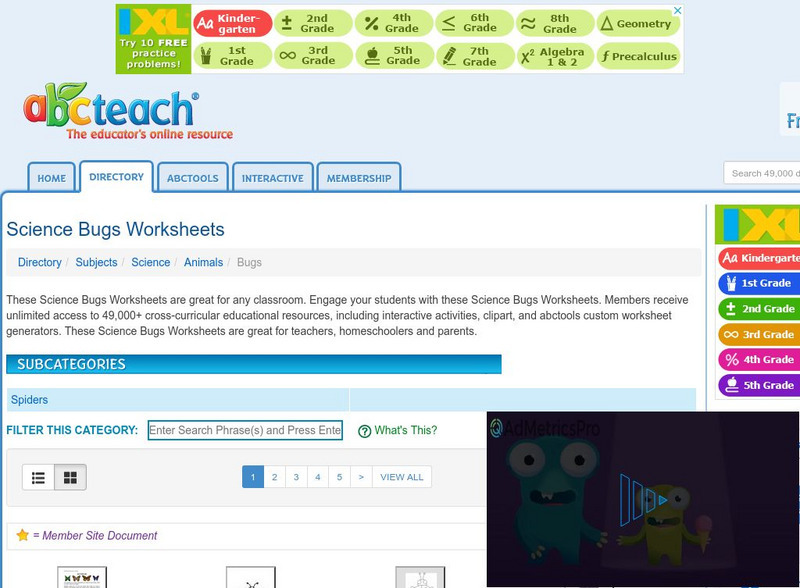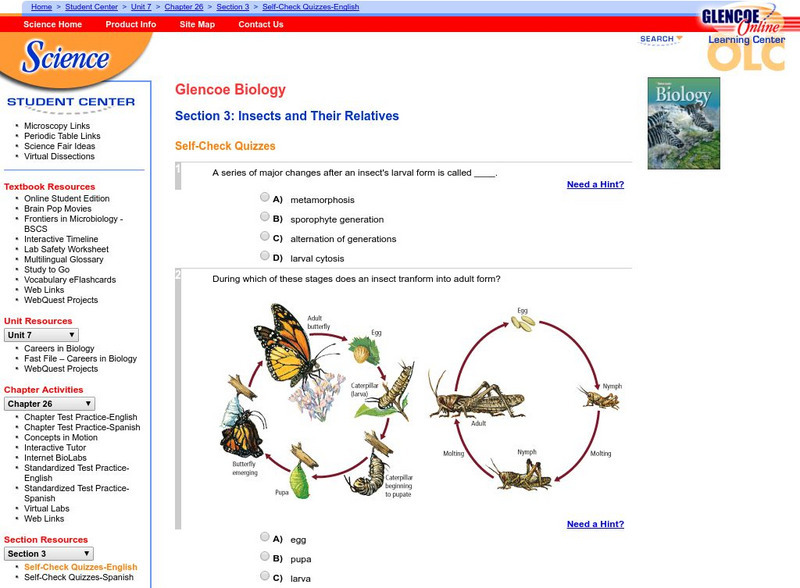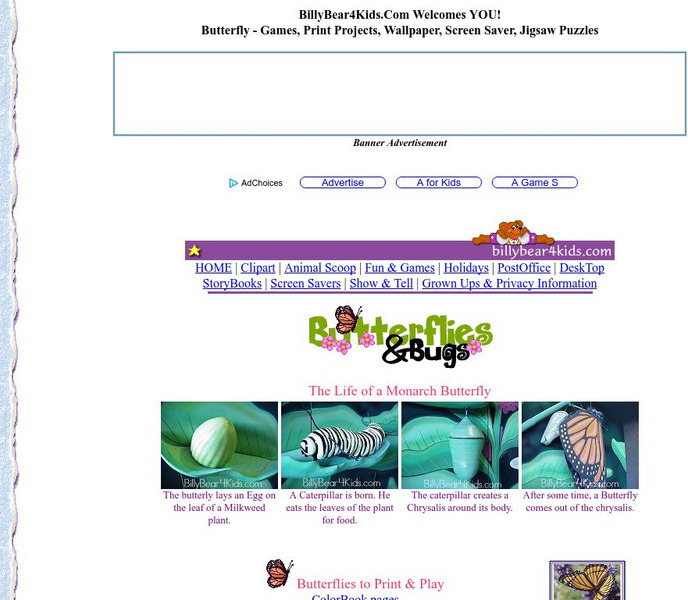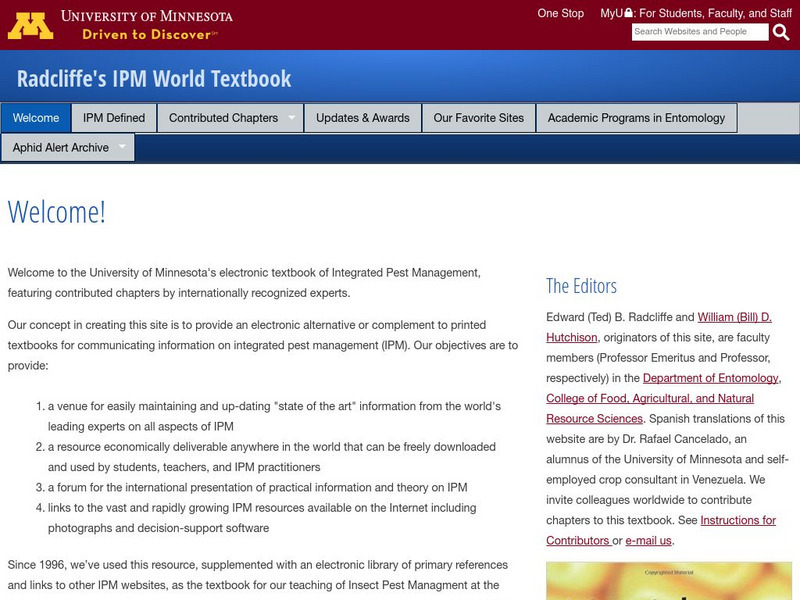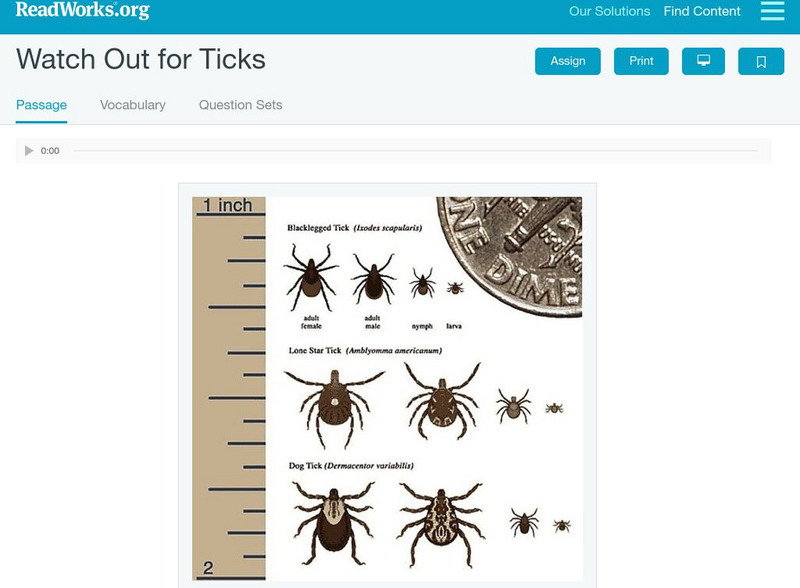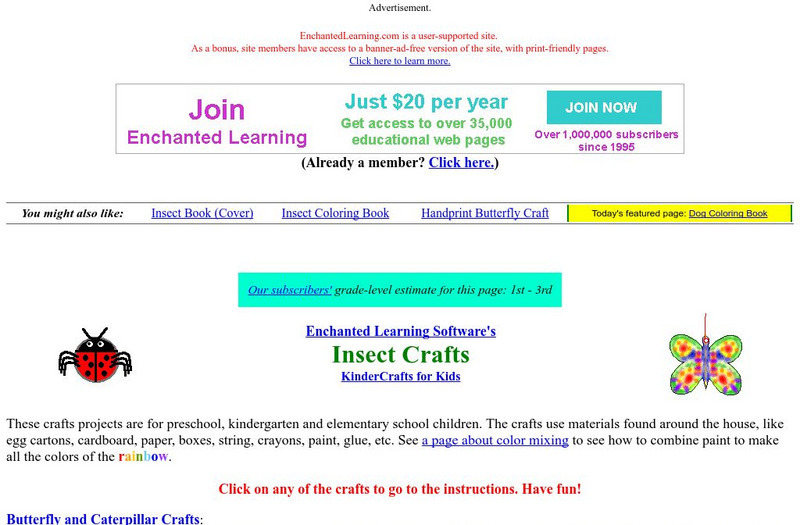Science Museum of Minnesota
Science Museum of Minnesota: Entomologist
Introduction to entomologists for young researchers. Site includes examples for more information about butterflies and entomologists.
Science Museum of Minnesota
Thinking Fountain: Spider Glider
With a few readily available supplies, you can make a "spider glider." Visit this site for directions and more about spiders.
Next.cc
Next: Insects
Investigate the world of insects by engaging in these interactive activities. Links are provided for further exploration.
Fun Brain
Fun Brain: Fun Match Game
Students use memory skills to match different kinds of themed cards, such as dinosaurs, bugs, musical instruments, colors, and animals. Players can choose different levels of difficulty--easy, medium, hard, or extra hard.
abcteach
Abcteach: Animals
[Free Registration/Login Required] This link will place at your fingertips all kinds of resources for your science unit pertaining to animals such as birds, bugs, dinosaurs, endangered species, fish, mammals and reptiles.
abcteach
Abcteach: Insects
[Free Registration/Login Required] Learn about the insect world using activities and lesson plans that emphasize cross-curricular learning.
Cynthia J. O'Hora
Mrs. O's House: Select and Insect Mascot for School or Community
Based on a scenario given, students will work to nominate an insect mascot for the school or the community for an upcoming event. Students will conduct research through resources provided or their own, create a presentation, and vote for...
Ed Koday
Web Archive: Earwigs
The name originates from the superstition that earwigs crawl into the ears of sleeping persons and bore into the brain. Although earwigs appear somewhat dangerous due to their forceps, they are practically harmless to man. Earwigs vary...
Ed Koday
Web Archive: Box Elder Bug
This bug is about 1/2 inch long and 1/3 as wide. It is black with three red lines on the thorax, a red line along each side, and a red line on each wing. The wings lie flat on the back when at rest. The young nymphs are red and gray. The...
Ed Koday
Web Archive: Harelequin Bug
This black, shield-shaped bug is brightly colored with orange, red, and yellow markings. It varies from 7 to 10 mm in length. At rest, the front pair of wings overlap and the insect's back appears to be marked with a distinct "X."
Ed Koday
Web Archive: Spittle Bug
There are 23,000 species of spittle bugs, but you may not have ever seen one because of the unusual way that they protect themselves. They actually produce a liquid that they whip up into a mass of bubbles, and then they hide in it! This...
Ed Koday
Web Archive: Milkweed Bugs
Adults are 9/16 to 10/16 inch long, black, and colorfully marked with reddish-orange on the head, sides of the pronotum (part of the thorax), and the wing covers. They have a Y-shaped head marking and two wide crossing orange bands...
TED Talks
Ted: Ted Ed: Why Are There So Many Insects?
Murry Gans details the reasons behind insect abundance across the globe. [4:44]
PBS
Pbs Kids: Dinosaur Train: River Run
Don and Buddy are going rafting down the river looking for bugs for Don's collection. Whoever collects the most bugs wins!
Other
Alphabet soup.com: Insects and Spiders
An extensive list of activities, songs, poems, and fingerplays are listed by alphabet-soup.com. Additional recipes, art projects, and literature connections are also included.
Other
Bugbios: Entophiles
Students can see pictures and descriptions of 14 different orders of insects.
McGraw Hill
Glencoe Biology: Insects and Their Relatives: Self Check Quiz
Five multiple-choice quiz questions covering insects and their relatives. Students have the opportunity to check their answers after submitting their results.
Other
Billy Bear4 Kids: Butterflies and Bugs
BillyBear4Kids.com is a great butterfly resource with links to butterfly cut-outs, flashcards, bookmarks, crafts, online games, and more. Scroll down for reproducibles.
University of Minnesota
University of Minnisota: Radcliffe's Ipm World Textbook
This is a site designed and used by professors to teach integrated pest management. A part of the National IPM network. Gives great photos and countless suggestions.
Read Works
Read Works: Watch Out for Ticks
[Free Registration/Login Required] This passage shares nonfiction information about ticks. This passage is a stand-alone curricular piece that reinforces essential reading skills and strategies and establishes scaffolding for vocabulary...
Natural History Museum
Natural History Museum: Insects and Spiders
As an online exhibit from the Natural History Museum, this site examines many different subtopics stemming from a study on both insects and spiders. Several of the subtopics include spider bites, bumblebees, moths, edible insects,...
Enchanted Learning
Enchanted Learning: Insect Crafts
An extensive list of elementary insect crafts. Each activity contains a list of everyday materials, and detailed instructions.
CK-12 Foundation
Ck 12: Life Science: 9.15 Insects
Understand the behaviors, characteristics, and classification of insects.


